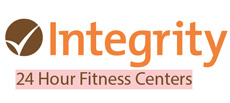How To Fully Accept Yourself and Be At Peace With Your Non-Peace
Do you fight with how you feel or what you think?
Are you holding high expectations of yourself and comparing yourself to others?
Do you want to find peace and contentment with yourself? If you’ve answered yes, this post is for you.
How To Fully Accept Yourself and Be At Peace With Your Non-Peace
One day while I was washing some dishes I had a realization: the best gift you can ever give someone is the space to be exactly as they are. Totally accepting them as they are, with no judgment, conditions, or expectations. Seeing them for what they are, not what you want them to be. Simply giving them space to be exactly and fully them self.
Therefore, the greatest thing you can do for yourself is to hold that same space and allow yourself to be exactly as you are, without any judgments, conditions, or expectations. Accepting yourself wholeheartedly, without any reservations.
This is often easier said than done, accepting yourself can seem like a full-time job because throughout life you’ve likely accumulated many expectations and beliefs about how you should be.
This post will examine the ways that we create internal conflict and prevent ourselves from being at peace with who we are.
Barriers to Accepting Yourself
In order to fully accept yourself, it is helpful to understand the areas of yourself that you find unacceptable. Let’s break down the areas into two groups: physical and non-physical.
Physical areas that you might find unacceptable include your appearance, your health, your love life and relationships, your finances and career, your age, and your habits.
Non-physical areas that you might find unacceptable mainly include your thoughts and emotions, but could also include your intelligence, your understanding of reality, and how you treat yourself.
Take some time to reflect and understand what it is that you find unacceptable about yourself, I suggest getting a pen and paper and taking a good hard look at yourself. What expectations do you have of yourself? How do you judge yourself? Are you waiting to achieve something or meet a certain condition until you can accept yourself?
Understand How You Judge Yourself
Once you’ve developed an understanding of the ways you find yourself unacceptable, it’s time to learn the mechanisms of your self-judgment. I’ve found that the primary mechanisms for me are impatience, expectations, and mental comparisons. These all relate to each other.
Think of it like this: impatience is how you judge yourself, expectation is what you judge yourself for, and mental comparisons are why you judge yourself.
Impatience relates to feeling that you should be farther along than you are. This could be in any area, such as your career, love life, or how you think or feel. For instance, you may think that you are above certain emotions or thoughts, that you should have somehow matured past them or evolved out of them by now. Those are expectations that you hold for yourself, and you then judge yourself out of impatience. The expectations come from how you view yourself in the world and how you relate and compare yourself to others.
Take time to really reflect on this mechanism so that you can build a sober understanding and recognize that you’ve created this dynamic within yourself.
How do you compare yourself to others? Do you compare your appearance, your financial position, or your relationships? When do you form these comparisons? Is it through social media or when you see people in public? Who do you compare yourself to? Why?
What expectations have you accumulated as a result of your comparisons? Do you expect yourself to be more successful or to be in better physical shape? Do you expect yourself to be virtuous all the time and never feel any negative emotions? How do your expectations relate to the comparisons you detailed above?
In what ways do you act impatiently in regard to meeting those expectations? How do you mentally talk to yourself? If someone else talked to you that way, would you tolerate it?
The more awareness you build of the mechanisms of self-judgment, the better you will be at letting go of self-judgment.
How Identifying with Thoughts and Emotions Leads to Self-Judgment
Throughout life you’ve built the habit of unconsciously identifying with the thought patterns and emotions that you experience. When you identify with them, they get added to the definition of self that you’ve created: the ego.
You are not the ego, you made the ego. Thoughts and emotions are transient, they only last if you invest yourself in them – if you identify with them by saying “this is me, this is who I am.”
In actuality, you are the consciousness that perceives the thoughts and emotions. You experience them like you experience your day to day life – you are not your experience, you are the experiencer.
There are no inherently good or bad thoughts and emotions – you are the one who makes those definitions. They are all useful, they can all provide learning opportunities, but your ability to see that truth depends on your perspective.
When you hold on to thoughts and emotions through identification, when you see them as crucial parts of yourself, you create a narrow definition of yourself. Think of it like claiming that you are these things, but not those other things. This causes you to judge any thoughts or feelings that you don’t associate with your definition of self: since they don’t fit your definition, they are unacceptable. Thus you mentally close yourself off to certain aspects of yourself.
This sets up internal conflict and distracts from the opportunity to learn and grow from the thoughts and emotions.
Observe Your Thoughts and Emotions Instead of Identifying With Them
All of your thoughts and feelings are ok. You’re allowed to feel anger, sadness, grief, pain, happiness, joy, jealousy, guilt, or any other emotion for that matter. You’re allowed to think those bad thoughts, the good ones, and all the strange ones in between.
These thoughts and feelings do not affect other people unless you act on them. This is the key distinction. Feeling anger is one thing, reacting out of anger and hurting someone else is another.
The precursor to reacting out of an emotion is identifying with it instead of feeling it. Identifying with an emotion or thought gives it the illusion of permanence, you essentially extend its life for as long as you hold onto it.
You don’t grow out of emotions – you stop reacting based on them. This is a subtle but key difference. It’s not that you grow out of fear and stop feeling it, but rather you simple don’t act on it. Instead, you hold it in awareness and feel it for what it is without getting caught up in it.
Practice observing and feeling your thoughts and emotions first instead of acting on them automatically. This practice will build equanimity in time. (For more reading about equanimity, check out this post that I wrote.)
Shift your perspective from seeing thoughts and emotions to vital parts of yourself, to seeing them as temporary phenomena that relate to your interaction with the world around you.
In order to learn and grow from the thoughts and emotions, hold them in your awareness, feel them fully without judging or pushing them away, and ask yourself: what can these thoughts or emotions teach me about myself? Are they showing me things that I have been holding on to and giving me the opportunity to let them go?
Once you can see your thoughts and emotions as helpful sign posts guiding you to self-improvement, you are well on your way to self-actualization.
Let Yourself Be
Finally, it all comes down to relaxing into yourself. Telling yourself that everything is ok, that you have enough – that you are enough. Let yourself feel all your feelings without reservation. Be here with yourself.
When you don’t allow yourself to be, you create an internal conflict – and conflict is the opposite of peace. This too is ok, let yourself feel what it’s like to be conflicted. Accept that you’ve created the conflict and be aware of how you created it. Let it fade through your acceptance of it, through letting it go. Reacting to the conflict will only make it last longer.
Conflict isn’t bad, it’s just not peace. Use it as practice to develop your inner balance.
The balance lies in maintaining your awareness as the observer instead of slipping into unconscious identification with thoughts and emotions.
When you catch yourself slipping, close your eyes and take a conscious breath – shifting your focus clears your mind.
Be at peace with your non-peace. Accept your conflicted state, don’t resign yourself to it. Let it clear on its own.
Let yourself be – you’re perfectly fine as you are.
Ben Fairbrother
I’m an Empowerment Coach here to help you expand your potential by releasing limitations that are holding you back.

Bookmark & Share
User Comments
Be the first to comment on this post below!
Previous Article
Next Article
Most Popular Articles
- Kim's Weight Loss Journey with Integrity Health Coaching Fitness Centers & Gyms in NH
- KARINA'S CREAMY DETOX SOUP RECIPE WITH COCONUT MILK
- New Year's - The 12 Months of Christmas!
- Store Special April 2 - 7
- SAVE THE DATE & REGISTER!! - TEAM INTEGRITY
- Maple Avocado Coconut Smoothie
- Almond Encrusted Chicken
- At Integrity Health & Fitness Coaching Centers, we are about lasting CHANGE.
About Integrity
Integrity Health is a franchise company residing in New Hampshire. We specialize in health coaching centers combining fitness with weight loss to optimize and promote optimal health. We are also the national purveyors of the RAMP Metabolic Fitness Prescription licensed by fitness professionals.
HEALTH COACHING LOCATIONS

491 Main Street
Gorham, NH 03581

1857 White Mountain Highway
North Conway NH 03860

Solutions For Fitness Centers

